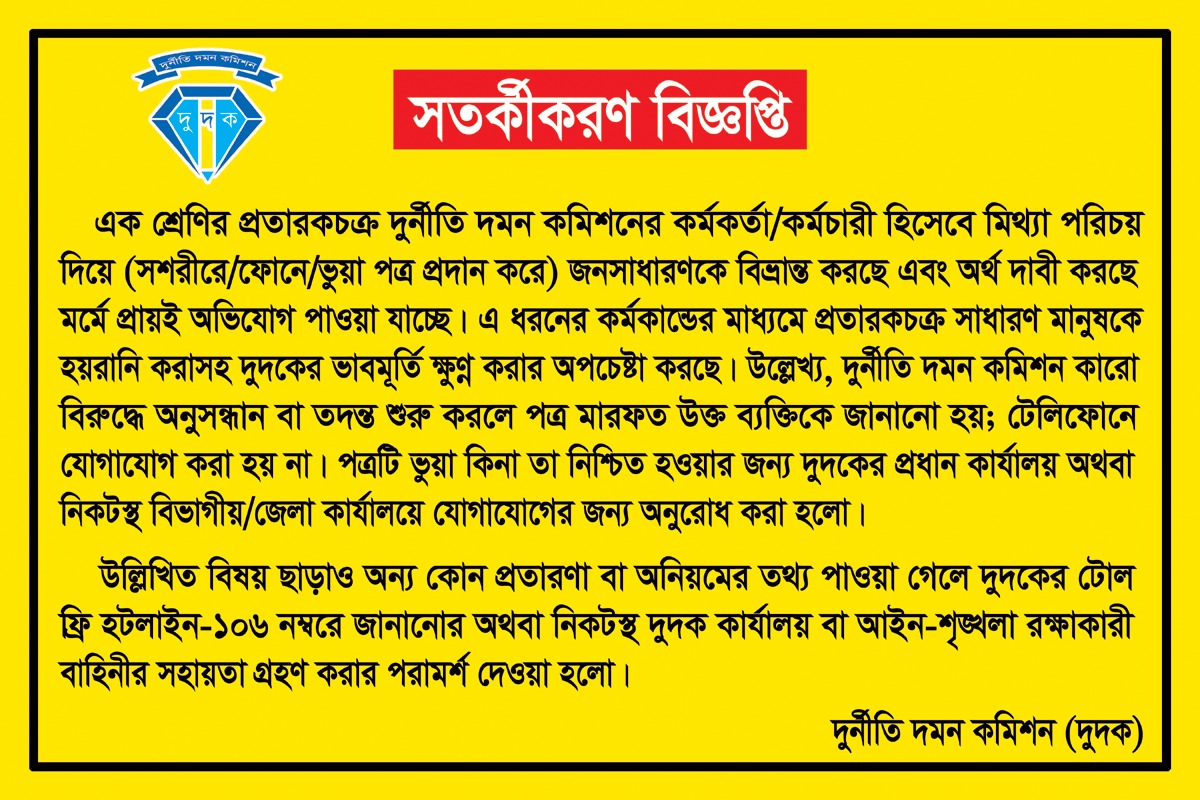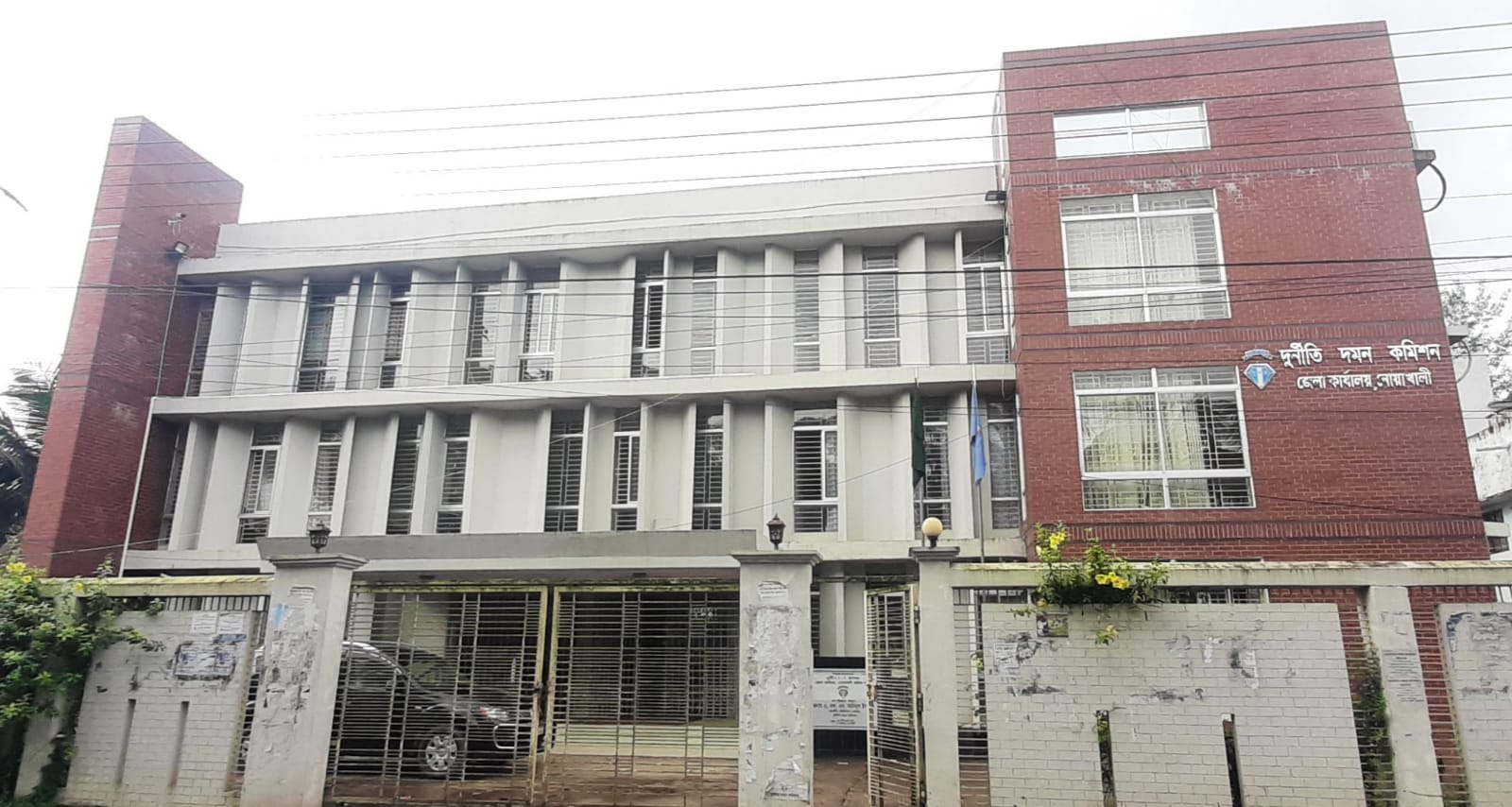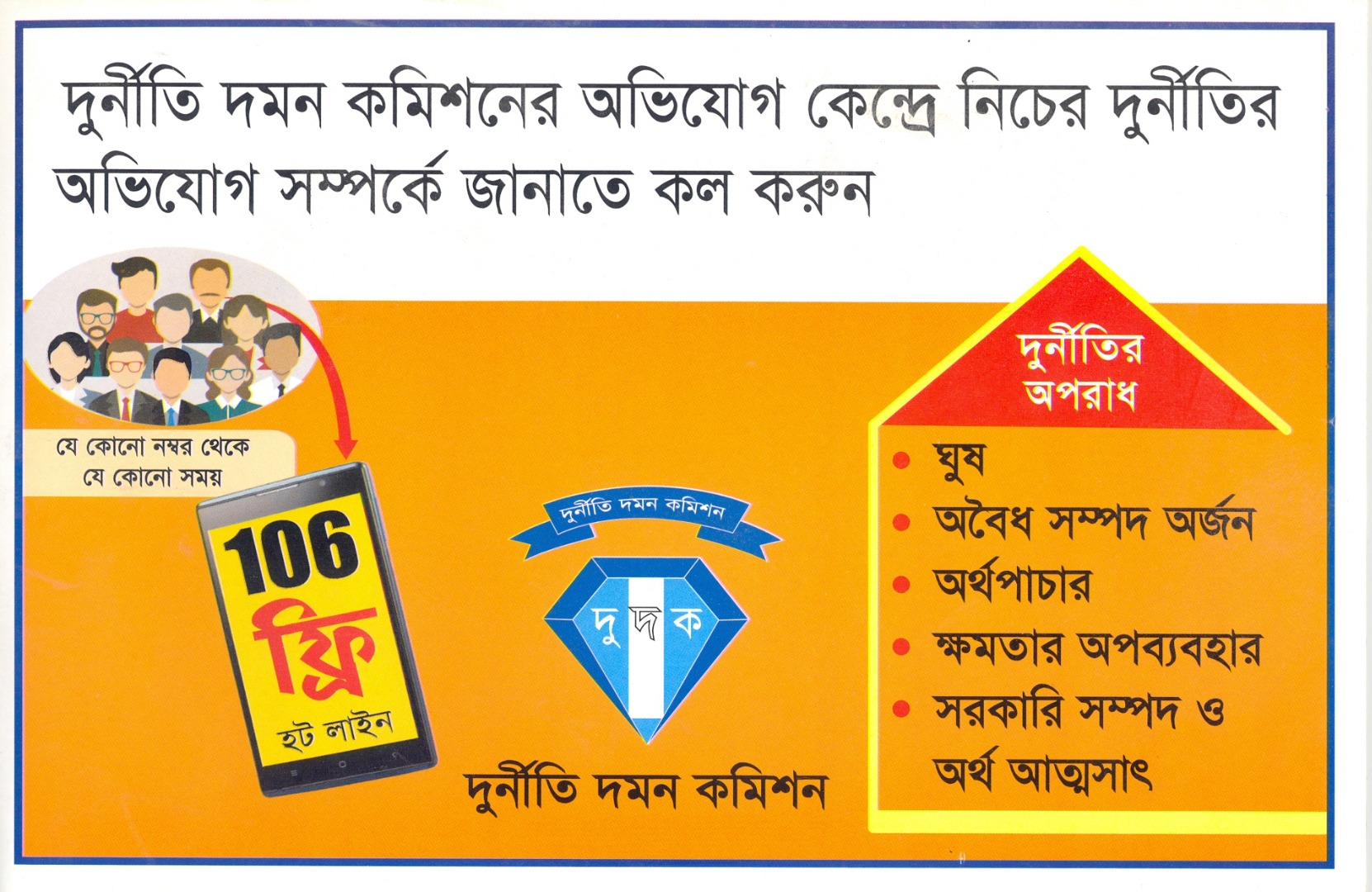-
-
- About Us
-
Our Services
Downloads
Training & Suggestions
-
Other Offices
Divisional/Upazila Offices
Ministry/Division & Department
- e-Services
- Gallery
-
Contact
Office Contact
Communication Map
- Opinion
-
-
- About Us
-
Our Services
Downloads
Training & Suggestions
-
Other Offices
Divisional/Upazila Offices
Ministry/Division & Department
- e-Services
- Gallery
-
Contact
Office Contact
Communication Map
- Opinion
Public Hearing to Prevent Corruption
Public Hearing is an effective means to be used for direct communications between the people expecting government services and the public servants in charge of rendering services of the like. During the Public Hearing the high officials of the Commission remain present and resolve different problems. On reviewing the grievances of the service-takers and the responsive explanations of the officials concerned, it transpires that the harassments while to receive government services is basically attributable to unawareness of the citizens, inefficiency of the officials, irregularities, mismanagement and defiance to time-limits in providing the government services. The Public Hearing is used as a strong tool to enhance the transparency, accountability and sense of conscience of the government officials at local level. In 2017 the Commission conducted 35 Public Hearings in different districts, 5 Public Hearings as follow-up that accounts to 40 Public Hearings conducted in all for the year. As maiden initiation, the ACC started the Public Hearing from Muktagacha in Mymensingh. The massive public participation in and their enormous support for the Public Hearing encouraged the Commission to continue it. Currently the programs of Public Hearings are being carried out with the technical support of various agencies including World Bank and TIB. Through 35 Public Hearings conducted in 2017, the Commission received 1,218 complaints, of which 1,030 complaints were disposed of.
In accordance with the Constitution of the People's Republic of Bangladesh, the prime obligation of the State is to provide the basic supports for the citizens to live with. Secondly, the Article-13 of the United Nations Convention Against Corruption (UNCAC) underpins the importance of participation of the Society (Civil Society, NGOs, Mass Media, etc.) in preventing corruption, procuring information and reporting. Thirdly, the pledge to deliver the public services to the citizens has been spelled out in the National Integrity Strategy, 2012 as approved by the government. Fourthly, in the neighboring countries- India and Nepal, the public hearing on public service delivery has turned into very powerful working tool. Worth noting that the central theme of the 7th Five Year Plan is empowering the citizens, which is possible by means of applying Public Hearing and other social responsibility mechanisms.
Objectives of the Public Hearing
- Listening direct to the complaints/grievances raised by the service-seeking citizens, and to get these settled off by the service-providing offices/agencies;
- Improving the quality of services deliverable to the citizens in every public office in compliance with the Citizen Charter;
- Building public awareness about Rights of the Citizens;
- Increasing empathy between service-seeking citizens and service providing officials;
- Identifying the sources of irregularities, corruption and procrastination.
Theoretical framework of Public Hearing
The structure of Social Responsibility as enunciated in the Global Development Report-2004 of World Bank has been used as the theoretical framework of Public Hearing. In conforming to this structure, what are needed to go a long way of service delivery are: (1) the strong voice of the Citizenry in the decision making process with the policy makers (2) monitoring (Citizen power) the service delivery activities of the service providers, by the citizens, and (3) evolving motivational structures by the policy makers, for the service providers. The importance of the accountability direct to the citizens has been highlighted through Public Hearing (Accountability through short-cut).
Legal framework of Public Hearing
Provisions of the Constitution:
- The Article 20 (2) states, "The State shall endeavour to create conditions in which, as a general principle, persons shall not be able to enjoy unearned incomes,
- The Article 21 (2) provides "Every person in the service of the Republic has a duty to strive at all times to serve the people".
- The National Integrity Strategy, 2012
- The relevant sections of the Anti-Corruption Commission Act, 2004.
- Two Office Memorandums of Cabinet Division issued on June1, 2014 and June 5, 2014.
- The Right to Information Act, 2009.
- The Whistleblowers Protection Act, 2012
Email: dg.prevention@acc.org.bd and dd.ido.noakhali@acc.org.bd
ACC's Policy on Public Hearings
Planning and Implementation: Cabinet Division, A2I, BCC, DoICT and BASIS







